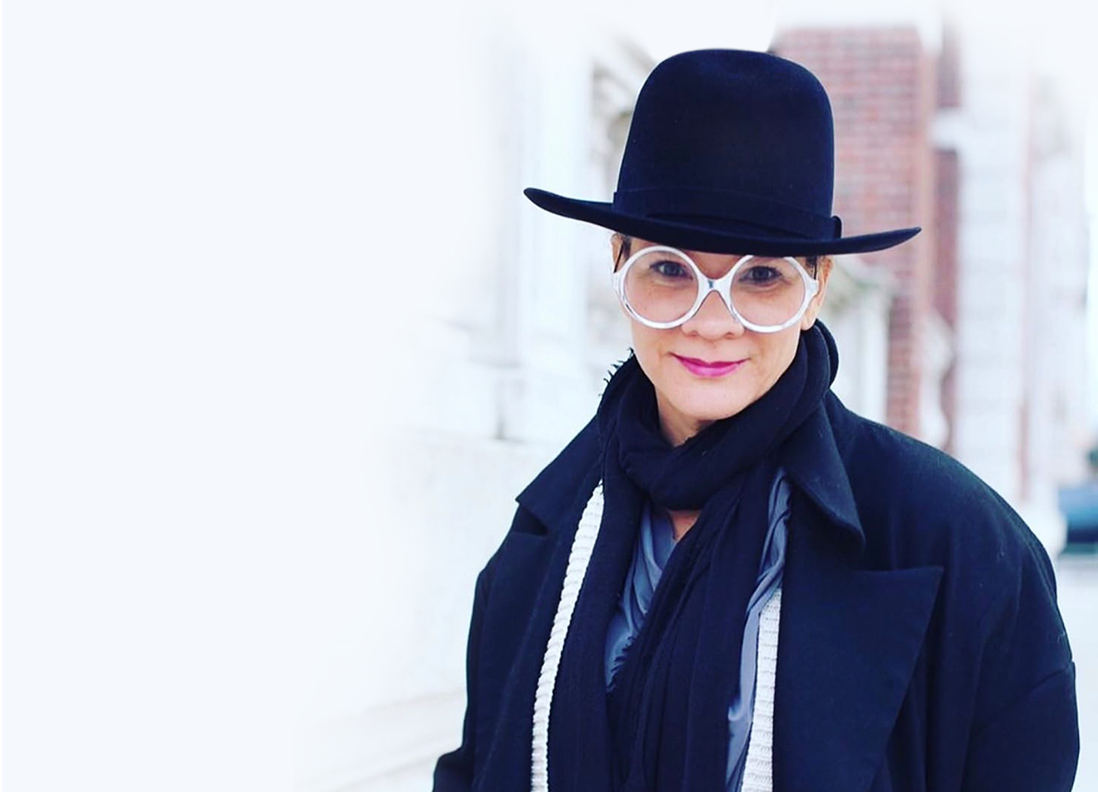In the ongoing movement for social justice and reform, our communities have faced incredible tragedies and injustices. After so much heartache and still staring down a long road, fatigue can creep in on our minds and bodies.
Hoping to combat the collective weariness many of us are feeling, Hulu has launched its “One Small Action,” campaign to amplify the voices of movement leaders who are finding ways that small actions can create a big impact. Partnering with Blavity, author and activist Michaela Angela Davis recently penned her thoughts on ways we each can take a small action today.
A few weeks ago I received a package. So many packages coming and going in these days of COVID and after the “holidays,” a box at the door has become a meager substitute for visitors with smiles you can see — though the internet has done an admirable job at transforming unboxing into an event. As I opened the top, the faint smell of sweet grass drifted out. Inside was a basket lined with pale linen containing a jar of dried roses and marigolds mixed in with Epsom and Himalayan pink bath salts, hand-whipped shea butter, a candle that smelled of vanilla flan, hair oil and a sage stick wrapped with lavender. It was a care package of exquisite intentionality sent to me by Patrisse Cullors and the women at Black Lives Matter Global Network. These women who tirelessly and brilliantly organize, strategize and fight for our dignity and our very valuable lives had the vision and grace to send representations of care to other Black women doing work. It was an explicit gesture of generosity with the absence of expectation. There was no ask to promote, post or tag; it was one small action of recognition, a collection of symbols that said “I see you, my sister. Here, take care of yourself.” It was not only selfless, it was strategy.
Black women taking long, warm, scented baths, midday naps or sipping fresh ginger tea while gazing at the sunset is not a luxury — it is an act of liberation. And when Black women equip each other with tools of beauty, rest and care – it is an uprising. I recall talking to Johnetta “Netta” Elzie a few years ago, and she said that when she was protesting in the streets of Ferguson, night after brutal night, one of the things she really wanted was a good-smelling body wash. Despite recent, frequent mantra-like messaging, the actual practice of self-care for working-class women, activists and marginalized folx can still be shrouded in guilt and shame. It is not superfluous — it is survival.
Upon closer inspection of my unexpected care package, I discovered that every lovely, luxurious item was from a Black-owned business. This brought even sharper focus to the notion that self-care is not solely connected to our liberation, that our physical and emotional wellness is interconnected with our economic health. What the world-class organizers of BLM affirmed in their gift to me was that choosing to buy Black is an explicit everyday act towards financial justice.
With each small action, each purchase, each dollar intentionally spent at Black-owned and minority businesses, we combat the wealth inequalities that have obstructed Black women’s paths to holistic physical and mental freedom for generations. Our businesses have always operated with immorally less capital and resources than that of the dominant caste (Black women receive less than 1% venture capital funding), despite Black- and minority-owned local and small businesses historically being the backbone and economic engines that power our communities. It is the entrepreneurial tenacity of our aunties and ancestors that have funded our education, institutions, and civil and social justice movements. Much of our social diseases and racial disparities can be traced right back to the severe, uncivilized and seemingly insurmountable wealth gap. And the soundest way to begin to build bridges across that mighty gap is not through periodic charity but through sustained actions promoting economic equality, one conscious purchase at a time.
The coronavirus has devastated small and local businesses in general, yet many Black-owned businesses were in survival mode during healthy times, So, now more than ever, buying Black and minority is a life-and-death proposition. Buying Black consistently and with intention is one small action and a sound investment towards equality. It’s also a way to discover dope stuff, delicious food and perhaps even some unapologetically beautiful treasures.
For more inspiration, visit https://www.hulu.com/one-small-action to learn about organizations that are fighting for equality and ways you can use #OneSmallAction to make a difference in your communities.
This editorial is brought to you in partnership with Hulu.

